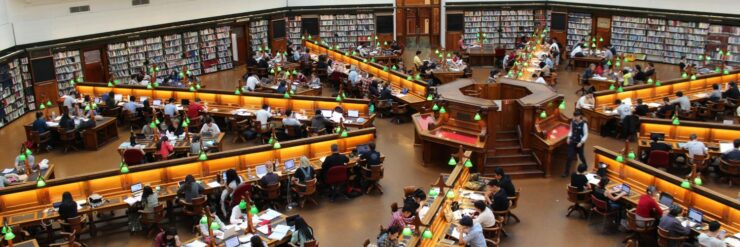The relationship between technology and education has never been more crucial. As colleges and universities adapt to an increasingly digital world, the partnership between higher education and AI is reshaping how students learn, plan, and succeed.
By analyzing data and personalizing learning experiences, AI empowers institutions to create smarter, more flexible degree pathways that meet the demands of today’s evolving job market.
Also Read: Why Educators Are Rethinking Standardized Testing—and What Might Replace It
Explore the innovative impact of blending higher education and AI.
This transformation represents a new era of higher education that is efficient, adaptive, and deeply student-centered.
The Evolution of Academic Planning
The integration of higher education and AI is transforming how institutions design and deliver degree programs. Traditional academic pathways once relied on static curricula and limited data insights.
Today, AI-driven systems analyze vast datasets to identify the most effective course sequences, skill gaps, and student needs. This shift allows universities to craft programs that adapt to changing industries and provide more relevant, future-ready education.
Personalizing the Student Journey
AI is bringing personalization to the forefront of higher education. Smart algorithms assess individual learning styles, past performance, and career goals to create tailored degree pathways. Students receive recommendations on which courses align best with their aspirations and strengths.
As higher education and AI work together, this personalization improves student engagement, reduces dropout rates, and helps learners progress efficiently toward graduation.
Data-Driven Decision Making for Institutions
Universities are now leveraging AI analytics to make informed academic decisions. Predictive models can forecast enrollment trends, evaluate course effectiveness, and anticipate skill demands across industries.
By embracing higher education and AI, administrators can design dynamic programs that respond quickly to workforce changes. This data-driven approach ensures degree offerings remain both competitive and aligned with real-world opportunities.
Preparing Students for the AI-Powered Workforce
As technology reshapes the job market, universities must prepare students for roles that require both technical and human-centered skills. The partnership between higher education and AI helps institutions identify emerging fields, such as data ethics, machine learning, and digital innovation. By integrating these subjects into degree pathways, students gain the adaptability and analytical thinking needed to thrive in AI-enhanced workplaces.
Conclusion: The Future of Smarter Degree Pathways
The relationship between higher education and AI will continue to deepen as more institutions adopt intelligent learning systems. These innovations not only personalize education but also optimize academic efficiency, reduce costs, and enhance lifelong learning opportunities. As AI evolves, universities will be able to predict future skill demands with greater accuracy and ensure students graduate ready for tomorrow’s challenges.








